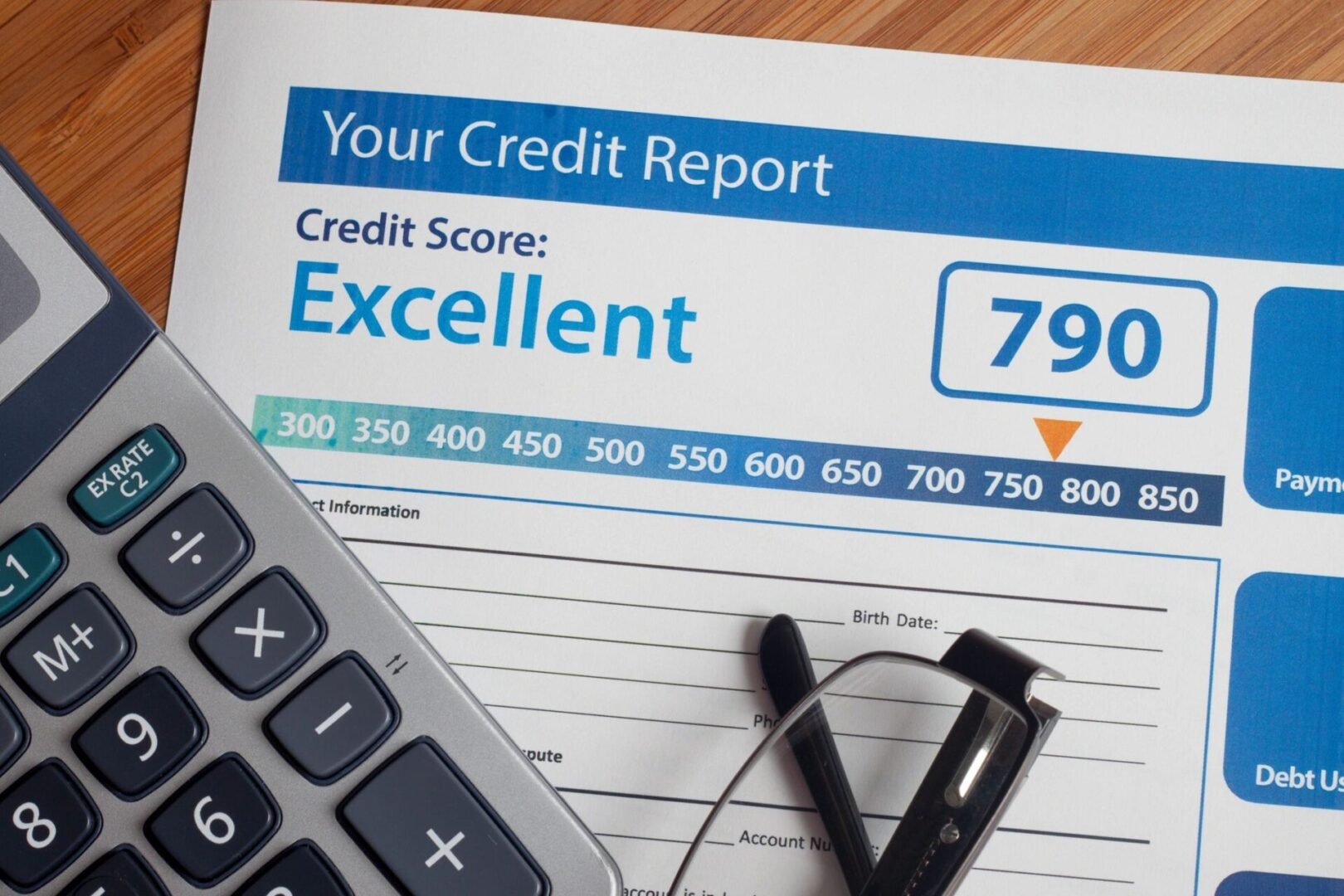

Knowing Your Credit Score
and Why it is important to YOU!

Your credit score can range from poor to excellent. In the US, credit scores range from 300 to 850, with the following rankings:
740 – 850: Excellent, 720 – 739: Very Good, 670 – 719: Good, 580 – 669: Fair, 300 – 579: Poor
When your credit score falls in the “poor” to “fair” (below 620) category, you may be required to pay sub-par rates on credit lines or be denied outright.
Your mortgage credit score is likely FICO, a score created by Fair Isaac and Company. Over 90% of mortgage lenders use this credit scoring model from all three credit bureaus – Trans Union, Equifax, and Experian.
Mortgage credit scores put a lot of emphasis on payment history and credit utilization with other factors playing a role too.
Mortgage credit scores focus mainly on your payment history, credit utilization, and credit mix. This is how they determine you are a good risk and could afford the mortgage payment you’re applying for.
1. Inspect Your Credit Report and Score
You can dispute any errors on your credit report and ask that they be removed. The credit bureaus will investigate your claim and respond within 30 days.
2. Pay Your Bills On Time
Late payments register on your credit as negative information. The later the payment is, the more damage you can expect to your credit score.
3. Keep a Low Balance
Credit reporting agencies dislike a high credit balance. When you max out your credit, it hurts your credit score. You should try to keep your credit utilization below 30%
if your credit limit is 10,000 then your balance should be kept below 3,000
4. Keep Old Credit Alive
The length of your credit history influences your credit score. Do not cancel old credit cards in good standing, even if you rarely use them now. Keep these cards and use them now and then to show some “activity” on your credit profile. Cancelling them lowers your total credit limit, hurting your credit utilization ratio
5. Vary Your Credit
It helps to have various credit accounts, for example, credit cards, installment loans, lines of credit, mortgages, etc. Your ability to manage all these different credit facilities well signals to credit bureaus that you are a good borrower.
Your mix of credit affects your credit score by about 10%.
6. Plan Your Credit Shopping
Every time you apply for credit, a hard inquiry is placed on your credit file, resulting in a drop in your credit score. If you need to shop around in several places for credit, for example, if you are shopping around for a car loan with the best interest rate, try and do so within 2 weeks. Credit reporting agencies will consider all the hard inquiries placed on your file within this period as one hit, limiting the potential impact that several hard inquiries would otherwise have.
7. Consolidate Your Debt
If you have a significant credit balance and find it difficult to keep up with paying it down, a low-interest balance transfer credit card can save you thousands of dollars in interest payments.
An example of a low-interest balance transfer card in Canada is the Scotiabank Value Visa Card which charges an interest of 0% for 6 months and 12.99% after.
To make the most of this strategy, you should plan to pay all or a significant portion of your debt during the low-interest period – usually 6 months.
If you qualify for a personal loan at a reasonable rate, you can use this to pay off your credit card balance and save money.
8. Get a Secured Credit Card
A “secured” credit card requires you to put down a deposit with the bank (such as in a GIC) that secures the amount of credit they are extending to you. For example, if your credit card has a limit of $2,000, you will be required to deposit $2,000 in a designated account. A secured credit card helps you to build your credit score when there are limited options. You will still need to pay your balance on time, and this is a good way to learn about how to use credit responsibly.
